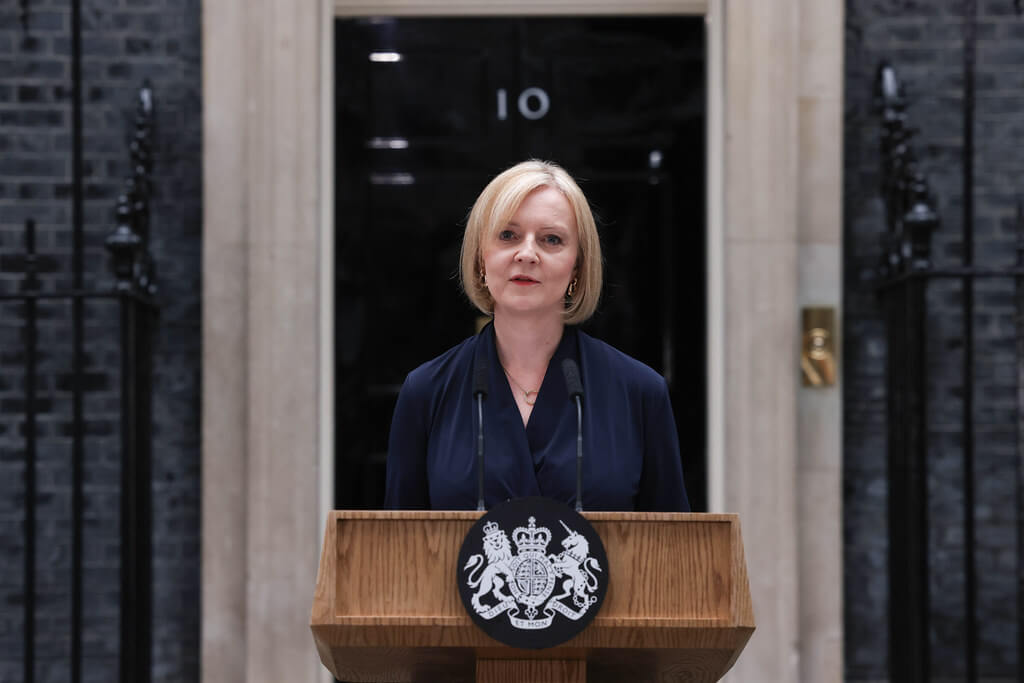Mike Scott writes about business, finance, clean energy and sustainability. He lives in Bournemouth, England.
The U.K. has a new prime minister, and, even though she once served as environment minister, questions are swirling about how committed Liz Truss and her government are to tackling climate change.
Since taking office September 6, she has pledged to expand oil and gas production from the North Sea and ended a ban on fracking, while during her campaign, she said she would change rules so that farmers could not put solar panels on their fields.
Meanwhile, some of her ministerial appointments have also sparked alarm. This included making Jacob Rees-Mogg, who looks like a top-hat wearing Victorian factory owner and has many of the same attitudes, secretary of state for business, energy and industrial strategy, and therefore responsible for energy policy. He has cast doubt on the urgency of the climate crisis in the past and is an enthusiastic advocate of both fracking and more North Sea development.
Tom Burke, co-founder of the environmental think tank E3G, told The Guardian that Rees-Mogg “has showed no sign of understanding the complexity or opportunity of net zero.” Burke added that “the single most important thing to do in energy policy now is to bring demand down. I have no confidence that he will take this forward.”
Rebecca Newsom, head of politics at Greenpeace U.K., added that “Rees-Mogg is the last person who should be in charge of the energy brief, at the worst possible moment.” She blamed him for pushing former prime minister David Cameron to cut funding for energy-efficiency programs, wind and solar, a move that has added £150 to every energy bill as gas prices have soared.
During the Tory leadership campaign, both Kemi Badenoch, the new trade secretary, and Suella Braverman, home secretary, said that the U.K.’s net-zero target – which is legally binding – should be suspended.
There are some encouraging signs, though: the new Chancellor of the Exchequer, Kwasi Kwarteng, a former energy minister and then business secretary, was heavily involved in the rollout of the U.K.’s Net Zero Strategy and has frequently been a strong advocate for the strategic importance of the energy transition. He has spoken out recently against fracking in the U.K., arguing that it “won’t materially affect the wholesale market price.”
He was also an advocate for the previous government to invest more in energy efficiency and to end the ban on onshore wind, clashing with other members of the Cabinet and the Treasury in the process. He runs the Treasury now, so that could herald big changes on energy efficiency, at least. In addition, he is in a position to limit the damage Rees-Mogg can do because he holds the purse strings.
Rees-Mogg is the last person who should be in charge of the energy brief, at the worst possible moment.
-Rebecca Newsom, head of politics at Greenpeace U.K.
While there was no mention of energy efficiency in new measures to tackle one of Europe’s most serious energy-price crises that Truss announced in Parliament on Thursday, the government’s Climate Change Committee and National Infrastructure Commission jointly wrote to the PM, calling on her to “develop credible policies for energy efficiency in buildings. Investing in efficiency now will provide meaningful reductions in the amount of energy wasted over the long-term and support the necessary transition to low-carbon heat.”
Simon Clarke, the new “levelling up” secretary, is also a strong advocate for net-zero, while Graham Stuart, who has long supported bolder climate action, will be climate minister and is expected to provide a strong counterpoint to his boss, Rees-Mogg.
There is no doubt that the new Cabinet is divided on the urgency of tackling climate change, but there are powerful voices in favour of action. And the Conservative leadership campaign – during which climate advocates were able to get all the candidates to commit to the U.K.’s net-zero target – showed that the climate action lobby is now a significant political force within the Tory party. If necessary, it can join forces with opposition MPs to thwart poor policies.
Perhaps that’s why Truss asked Chris Skidmore, former energy and climate minister and one of the biggest Tory supporters of climate action, to conduct a review into meeting the U.K.’s net-zero commitments in the most economically efficient way.
Given the simple economic and political fundamentals – gas in Europe is nine times more expensive than renewable energy at the moment, and renewable projects can be developed in months (if the permitting process is sorted out), while fracking and the North Sea will take years to come online – this report, to be completed before Christmas, could help build support for climate action in the party.
Fracking has just 17% support in the U.K. compared to 76% for renewable energy projects, and any proposals would be subject to widespread protests.
Most importantly, Truss does not command the overwhelming support of her party in Parliament. A majority of her MPs wanted someone else as leader, raising questions about the extent to which she will be able to get any policies through Parliament, including anti-climate ones.
Her party is a long way behind in the polls. Her ability to command a majority for contentious anti-climate policies is unproven at best. And don’t underestimate the impact of the new king: Charles III’s views on climate change are well-known and harder now than ever to ignore, even if he is now limited in what he can say in public. In the end, her ability to impose climate-unfriendly actions may be severely constrained. And in the absence of a global event on home turf such as last year’s COP26 climate conference in Glasgow, it seems unlikely she will be as forceful an advocate for climate action globally as her predecessor was.







